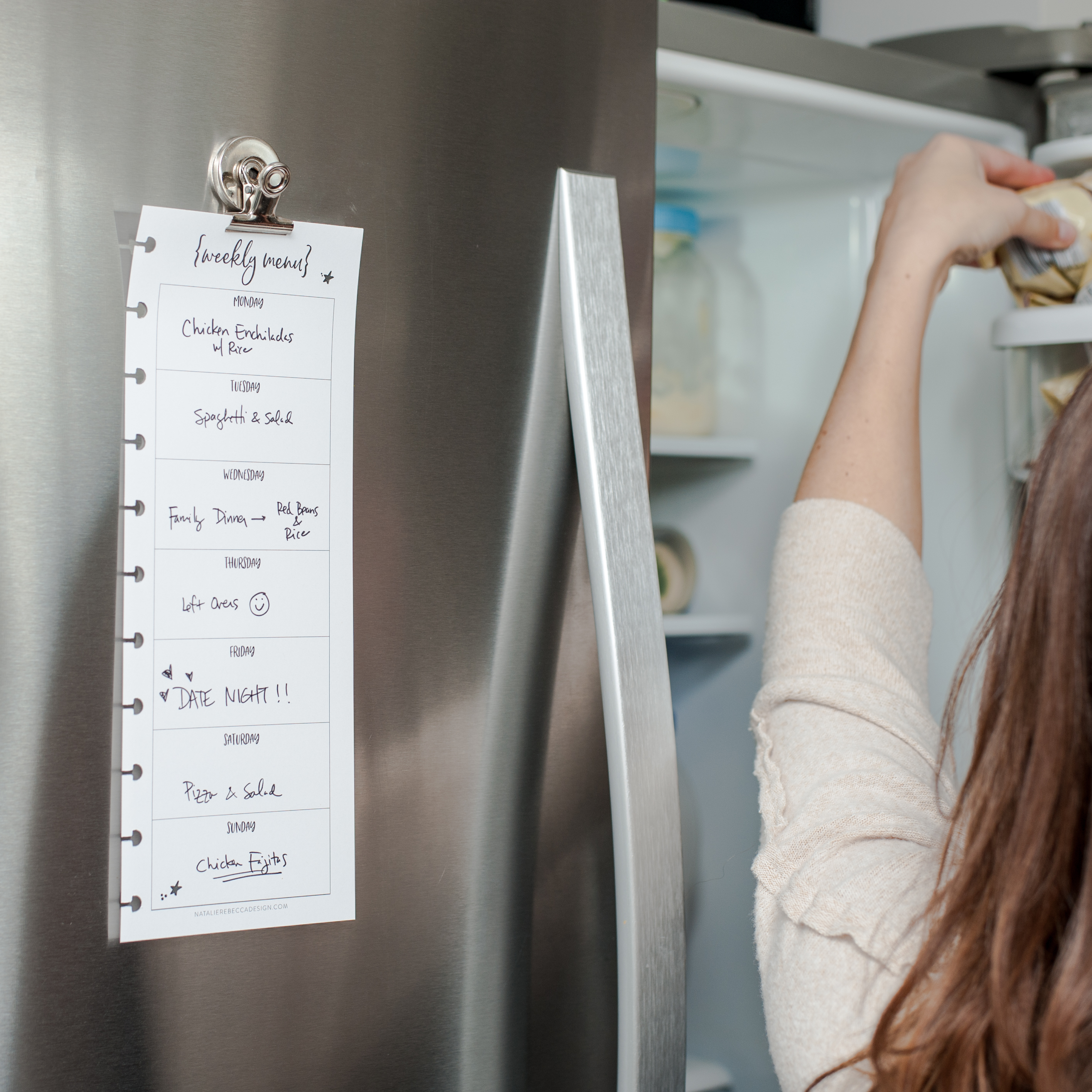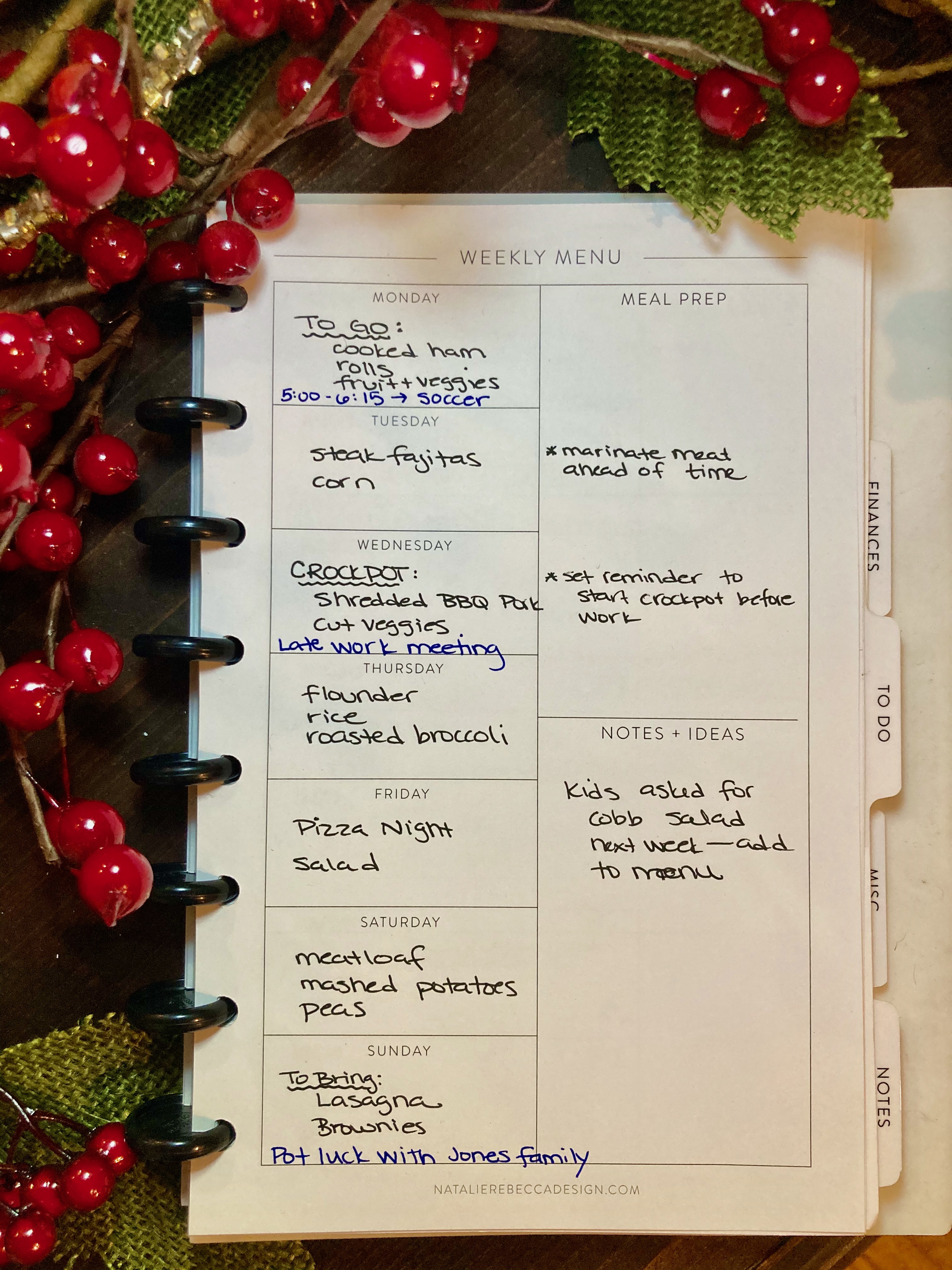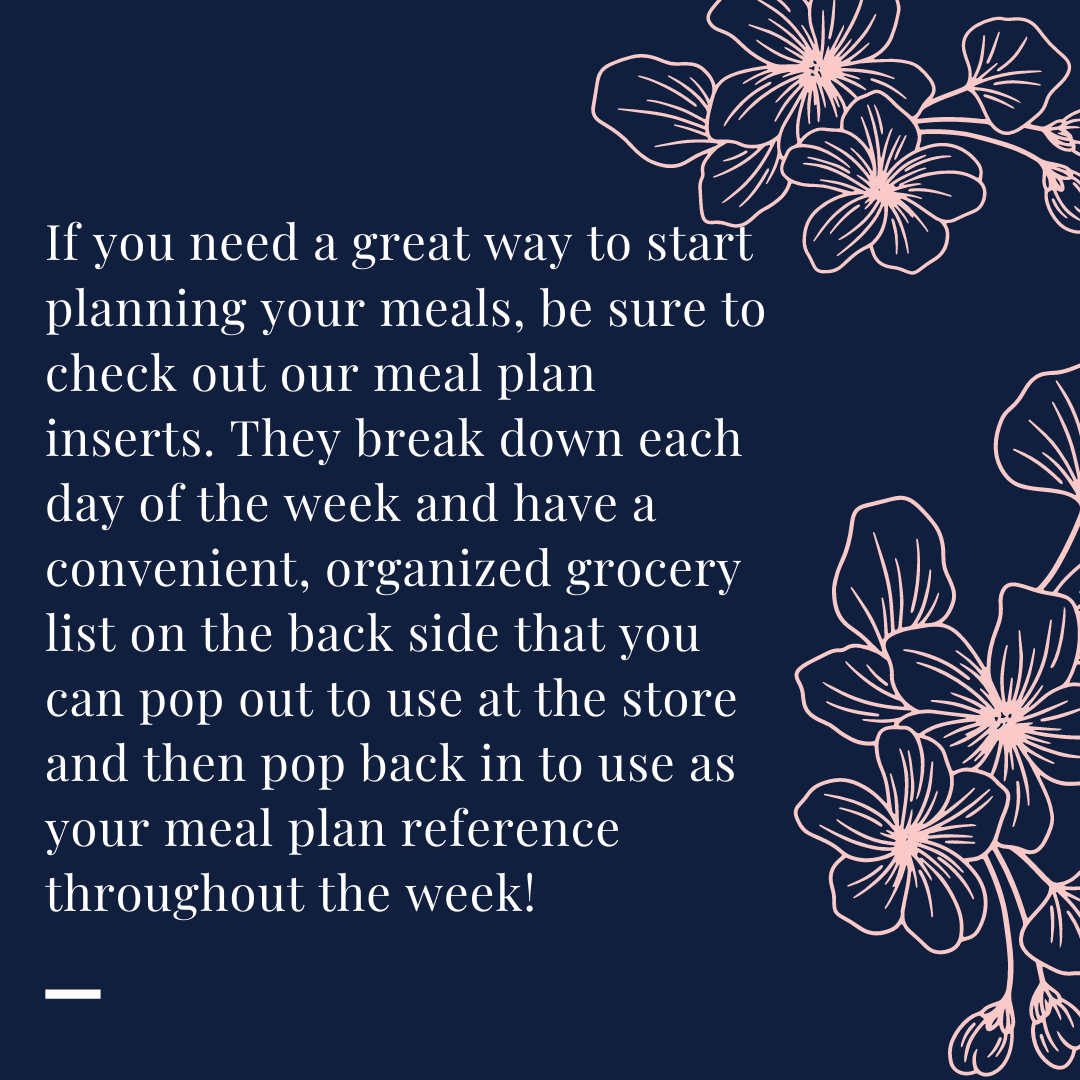Meal Planning 101
Dec 2nd 2020
We’ve just made it through one of the most iconic (and sometimes stressful) meals of the year: Thanksgiving. There’s no doubt, even in the less traditional year that we’re experiencing, that the meal planning for Thanksgiving dinner was purposeful and well planned out. There was a detailed grocery list prepared so that no ingredient would be forgotten or left out, right down to the side dishes and desserts. And certainly future meals incorporated the anticipated leftovers from this carefully planned family meal.
Though not every week contains a day as special as Thanksgiving, this time of year brings to light the importance of meal planning. Cooking can be a struggle. After all, it involves planning ahead, creating a shopping list, driving to the store, and buying a week’s worth of groceries. Each night it then involves chopping and prepping, cooking, and cleaning. But despite it’s perceived difficulty, meal planning can truly become a blessing in your life.
For starters, meal planning can save you money and help you make healthier food choices. According to the Bureau of Labor Statistics, the average American spends about $3000 a year eating out. And it’s not only money that’s at stake. Generally, restaurant foods are packed with significantly more sugar, sodium, and fat than home-cooked meals. Having no clear plan for meals often leads to the choice to eat out because it seems to be the quicker option. Doing so can often become a habit, even though there are many home-cooked meals that are just as quick and easy to make, meals that also save us money and do more good for our bodies. Additionally, planning meals ahead allows for more balanced dishes with good, nutritious, satisfying variety.
Meal planning is also a way to save time and reduce stress. There’s nothing worse than looking down at your watch at 5:00--whether you’re driving home from work or sitting in your kitchen after a long day at home--knowing that you need to start working on dinner, but having no idea what to cook. If you’re already out it feels overly tempting and so much quicker to just grab a bite to eat on your way home. If you’re already staring at your pantry, waiting for meal inspiration to come, it’s quite likely that your fatigued mind is just going to spin through possible options without landing on a single decision. Ironically, the lack of time planning ahead is actually creating more wasted time each week--the time you spend thinking about what to cook or deciding where to go grab food and wait in line could actually have been spent cooking a meal.
Finally, planning meals each week can lessen food waste. While this is obviously connected to valuing the money you spend on food, it also demonstrates a value for food and the sustainability of the Earth. A 2020 US News report shows that around 30% of food is wasted in America, and the average family throws away over $1800 worth of food every year. Planning ahead for meals means you know ahead of time what you’ll be cooking and using each week. The ingredients for these meals goes on a list and you only buy what you need, lessening the chance that randomly-selected, perishable food purchases will go bad before you use them. As a bonus, a specific grocery list also saves you precious time as you work your way through the grocery store (and perhaps keeps you from going to the store multiple times a week!)
Though meal planning can seem overwhelming at first, there are some basic steps you can take to help it become a normal part of your routine. To get started, jot down some of your favorite meals. If you’re cooking for a family, ask your family members for ideas as well! For more inspiration, flip through a cookbook or go online to search a few recipe websites. Plan a week of meals at a time. Be sure to include side dishes and vegetables as well. When you have your menu planned, create a shopping list of ingredients you will need. (For an added time saver, use a customizable app or create a written list that is organized by aisle/section of your grocery store.)
Here are a few others tips and tricks to make meal planning easier and more successful:
- Don’t start from scratch every week. Consider making certain weeknights designated nights--pizza every Friday, chicken every Wednesday, casserole every Sunday, etc.
- Check your calendar. If you know you’ll have a late night at work or a busy evening driving kids to sports practices, plan on a meal in the crockpot or an easy to-go sandwich night.
- Shop your pantry. Take a look at stocked-up canned goods or remaining perishables that you’d like to use up and plan a meal around them.
- Grill ahead. Buy and prep several types of meats that you can grill up on the weekend and use later in the week.
- Make extra. Extra dinner foods can be used for lunch the next day or as toppings for future meals. For example, that roasted chicken from Monday night can easily be tossed onto a Caesar Salad on Tuesday night.
- Mix things up. Keep meal planning interesting by planning a variety of dishes. Include some meatless meals or make breakfast for dinner. Serve up both comfort foods and healthier options. Alternate between family favorites and new recipes.
- Build in a night off of cooking. This could be a night for take-out or a night to eat up leftovers.
- Be flexible. You might end up swapping meals one night or needing to opt for something different. This doesn’t make your meal plan worthless or unsuccessful.
- Start small. If planning for a whole week’s worth of meals feels overwhelming, just plan a few at first.
Silvia Veri, registered dietitian at the Beaumont Weight Control Center - Canton sums up meal planning perfectly: "With anything in life, if you fail to plan, you plan to fail. That applies to meal planning as well. Planning meals and snacks ahead of time increases the chance for success, it increases the likelihood a healthier food choice will be made."
No need to wait until January to start forming a new habit! Take the first step to simplify mealtime by making meal planning a regular part of your week.



